Combustion Reactions
Combustion is a chemical reaction that occurs between a fuel and an oxidizing agent, usually oxygen. The reaction releases heat and light in the form of a flame. This type of reaction is exothermic, meaning it releases energy in the form of heat.
Key Points to Remember:
- Combustion reactions require a fuel and an oxidizing agent, usually oxygen.
- Common fuels involved in combustion reactions include hydrocarbons such as methane, propane, and gasoline.
- The products of a combustion reaction are carbon dioxide and water, along with heat and light.
- Combustion reactions are essential for processes such as burning wood for heat, fueling engines, and providing energy for various industrial processes.
Examples of Combustion Reactions:
Here are some common examples of combustion reactions:
- Burning of natural gas: CH4 + 2O2 → CO2 + 2H2O
- Burning of propane: C3H8 + 5O2 → 3CO2 + 4H2O
- Burning of gasoline: C8H18 + 25O2 → 8CO2 + 9H2O
Study Guide:
Here are some key points to include in your study of combustion reactions:
- Understand the definition of combustion and the key components involved in the reaction.
- Learn to identify common fuels and oxidizing agents used in combustion reactions.
- Practice balancing combustion equations to understand the stoichiometry of the reaction.
- Explore real-world applications of combustion reactions, such as in heating systems, engines, and industrial processes.
- Understand the environmental impact of combustion reactions, particularly in terms of air pollution and greenhouse gas emissions.
Remember to review these key points and practice solving combustion reaction problems to reinforce your understanding of the topic.
.◂Science Worksheets and Study Guides Fifth Grade. Roots, Stems and Leaves
Study Guide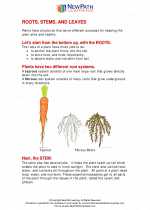 Roots, Stems and Leaves
Roots, Stems and Leaves  Activity Lesson
Activity Lesson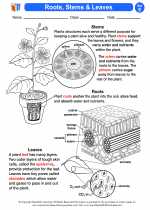 Roots Leaves
Roots Leaves  Worksheet/Answer key
Worksheet/Answer key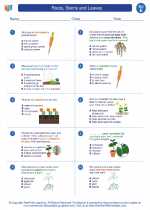 Roots, Stems and Leaves
Roots, Stems and Leaves  Worksheet/Answer key
Worksheet/Answer key Roots, Stems and Leaves
Roots, Stems and Leaves  Worksheet/Answer key
Worksheet/Answer key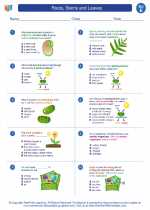 Roots, Stems and Leaves
Roots, Stems and Leaves  Worksheet/Answer key
Worksheet/Answer key Roots, Stems and Leaves
Roots, Stems and Leaves  Vocabulary/Answer key
Vocabulary/Answer key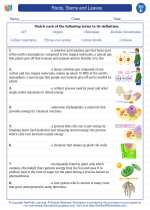 Roots, Stems and Leaves
Roots, Stems and Leaves  Vocabulary/Answer key
Vocabulary/Answer key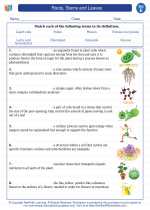 Roots, Stems and Leaves
Roots, Stems and Leaves  Vocabulary/Answer key
Vocabulary/Answer key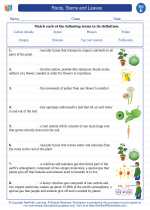 Roots, Stems and Leaves
Roots, Stems and Leaves 

 Activity Lesson
Activity Lesson
 Worksheet/Answer key
Worksheet/Answer key
 Worksheet/Answer key
Worksheet/Answer key
 Worksheet/Answer key
Worksheet/Answer key
 Worksheet/Answer key
Worksheet/Answer key
 Vocabulary/Answer key
Vocabulary/Answer key
 Vocabulary/Answer key
Vocabulary/Answer key
 Vocabulary/Answer key
Vocabulary/Answer key

The resources above cover the following skills:
LIFE SCIENCE (NGSS)
From Molecules to Organisms: Structures and Processes
Students who demonstrate understanding can:
Support an argument that plants get the materials they need for growth chiefly from air and water.